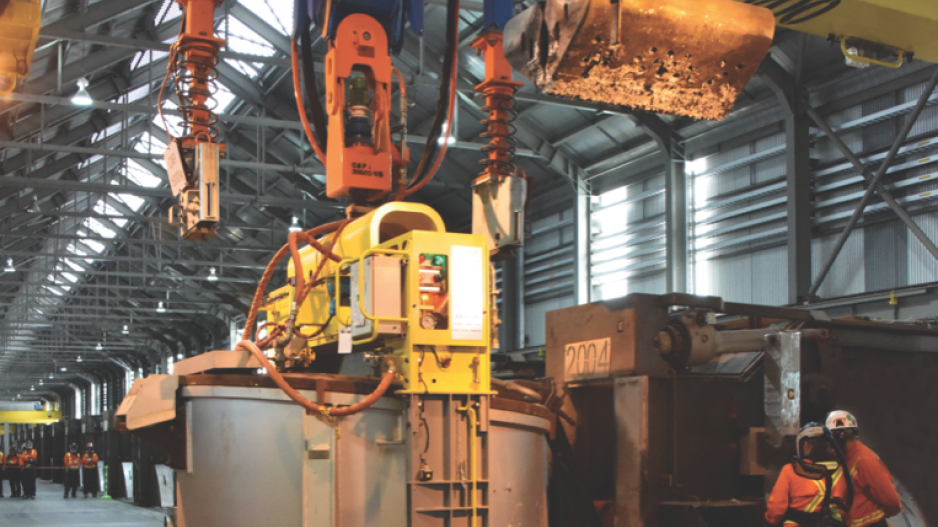Business and union leaders in the steel and aluminum business were blindsided Thursday by an unexpected announcement by U.S. President Donald Trump that the U.S. will slap tariffs of 25% on all steel and 10% on all aluminum products imported by the U.S.
And they are still struggling to determine whether Canada will be exempt from the tariffs, since Canada imports more American steel products than it exports.
If it isn’t exempt, Canadian steel and aluminum producers could be hit with a double-whammy, since it is expected that, essentially barred from U.S. markets, China would begin dumping cheap steel into Canada.
Industrial stocks immediately fell on Trump’s announcement. Although China is the target of Trump’s tariffs, Canada would be the biggest casualty. According to U.S. trade statistics, Canada is the single largest supplier of steel to the U.S.
In 2016, Canada exported $5.9 billion worth of steel to the U.S., according to the Canadian Steel Producers Association, and imported $6 billion worth of U.S. steel. According to the U.S. Department of Commerce, Canada exports $7 billion worth of aluminum to the U.S. annually.
B.C. is not a major steel producer, but it does produce aluminum. In 2017, B.C. exported $1 billion worth of aluminum, according to BC Statistics.
Rio Tinto has a major new aluminum smelter in Kitimat. According to Rio Tinto, 75% of the aluminum it produces in B.C. and Quebec is exported to the U.S.
“Rio Tinto is really the only big primary metal manufacturer that’s going to be hit by this that we can see at first glance,” said Andrew Wynn-Williams, divisional vice president of the Canadian Manufacturers and Exporters (CME).
Ken Newmann, national director for the United Steelworkers Canada, was in Pittsburg when Trump announced that, next week, he plans to sign trade sanctions against all steel and aluminum imports.
He and other USW representatives did not expect a decision on the threatened tariffs so soon. And he is hoping Canada will be exempt from the tariffs.
“There seems to be a lot of confusion with respect to his comments of 25-10, but there’s no firm decision with respect to Canada,” Newmann said.
“If you look at trade, the United States sends more steel to Canada than the other way around. And it’s been an integrated market for many, many decades.”
Wynn-Williams said that Trump is using national security as a way of unilaterally slapping tariffs on steel and aluminum imports without having to go through Congress, where he would get pushback. And he fears that that means that the tariffs cannot be targeted, but will have to extend to all countries.
“The basic issue is that China is dumping steel into Canada and the U.S. and Trump wants to address this, but is facing pushback,” Wynn-Williams said. “So the only way he can unilaterally, without going to Congress, put on this kind of tariff is if it’s a national security issue. So he’s claiming it’s a national security issue and that forces them, instead of to just target China, just to put this blanket up.
“It’s unclear if that blanket goes outside NAFTA or inside NAFTA, so we’re not sure if it’s actually even going to apply to Canada or not.”
If Canada does become the target of American tariffs, Canadian steel and aluminum makers will end up hurt by both the U.S. and China, Wynn-Williams warned.
“If they put this up…and the U.S. market becomes shut to them (China), where else are they going to put it? They’re going to put it here. So, we would see a massive increase in steel dumping into Canada, which would decimate our primary industry.”
Asked for comment on the tariffs, Rio Tinto wrote in an email: “We will continue to engage with U.S. officials to underscore the benefits of the integrated North American aluminum supply chain, including the jobs it supports on each side of the border.
“Aluminum from Canada has long been a reliable and secure input for U.S. manufacturers – including the defense sector.”




